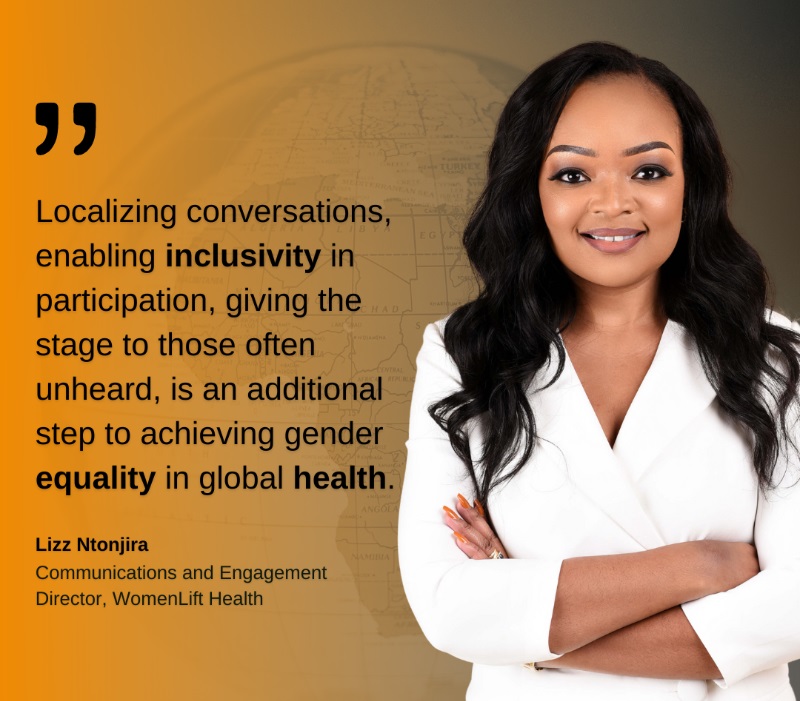Global health conferences serve as crucial platforms for the exchange of knowledge, decision-making processes, and fostering personal and professional growth among participants.
These conferences, occurring either annually or bi-annually, represent significant gatherings in various specialties.
Notable events include the recent Conference of the Parties (COP) hosted by the government of Dubai, the annual United Nations General Assembly (UNGA) in New York, USA, the bi-annual International AIDS Conference, Women Deliver Conference held every two years, World Health Summit, World Health Assembly, MNH Conferences, Vaccine Conference, among others.
Despite the anticipation for candid discussions, evidence presentations, research analyses, major commitments, and opportunities to enhance global knowledge exchange, a crucial aspect often remains overlooked.
The primary focus should be on those most affected by health crises, where gaps are more apparent, and where the heart of the conversation should truly lie.
Unfortunately, evidence has shown us that global health conferences are mostly held in the global north where the majority of the global health institutions are headquartered , ironically with the goal of addressing critical health gaps that are eminent in the global south. 85% of global health institutions are headquartered in the global north.
Of the 112 global health conferences held between 1990 and 2019, 71% took place in high income countries, 26% in middle income countries and only 4% in low-income countries.
And while I believe there is increased effort to ensure diversity and conference equity, this will entail more intention.
While discussions at global conferences often revolve around the developing world and its most marginalized populations, a stark reality persists, these conversations frequently occur without meaningful representation from the very communities under discussion.
Conference inequity is a pervasive issue in global health, marked by limited attendance from low and medium-income countries, primarily due to systemic barriers like exorbitant travel costs and stringent visa restrictions.
The COVID-19 pandemic only exacerbated these inequities, rendering the global travel landscape even more uneven and challenging for those already facing barriers to participation.
Representation is not only geographical, but there are also very few speaking opportunities allocated to community members from low- and medium-income countries during global health gatherings, and this limits opportunities for active meaningful, and objective participation.
Therefore, I propose that global health conferences should be more inclusive, equitable, and responsive to the needs and realities of the global south, and especially the LMICs.
This can be achieved by: Increasing the number and frequency of global health conferences held in the global south, and ensuring that they are accessible, affordable, and culturally appropriate for the local participants.
Providing more funding and sponsorship opportunities for the global south participants, especially the young and emerging leaders, to attend the global health conferences held in the global north and facilitating their visa and travel processes.
Enhancing the diversity and representation of the global south participants in the planning, organizing, and delivering of the global health conferences, and ensuring that they have equal opportunities to speak, present, and network at the conferences.
Promoting the dialogue and collaboration between the global and local health actors, and ensuring that the global health agenda is informed by and aligned with the local health needs and priorities, and that the local health actors are involved in the implementation and evaluation of the global health interventions and recommendations.
By doing so, I believe that global health conferences can become more effective and impactful platforms for advancing global health, and for achieving the vision of health for all.
It is on this premise that, The WomenLift Health Global Conference 2024 is being hosted in Dar salaam, Tanzania. As an organization, whose mission is to enhance the power and influence of women in global health and advise and mitigate on ways to close the gap in leadership in global health, it is critical to ensure that the conversations on challenges barring women from global health leadership take place in one of the continents where the gap on women’s leadership in global heath is wider and more apparent.
Localizing conversations, enabling inclusivity in participation, giving the stage to those often unheard, is an additional step to achieving gender equality in global health.
The author is a Communications & Engagement Director – WomenLift Health
This article was first published on Daily News, Tanzania.


